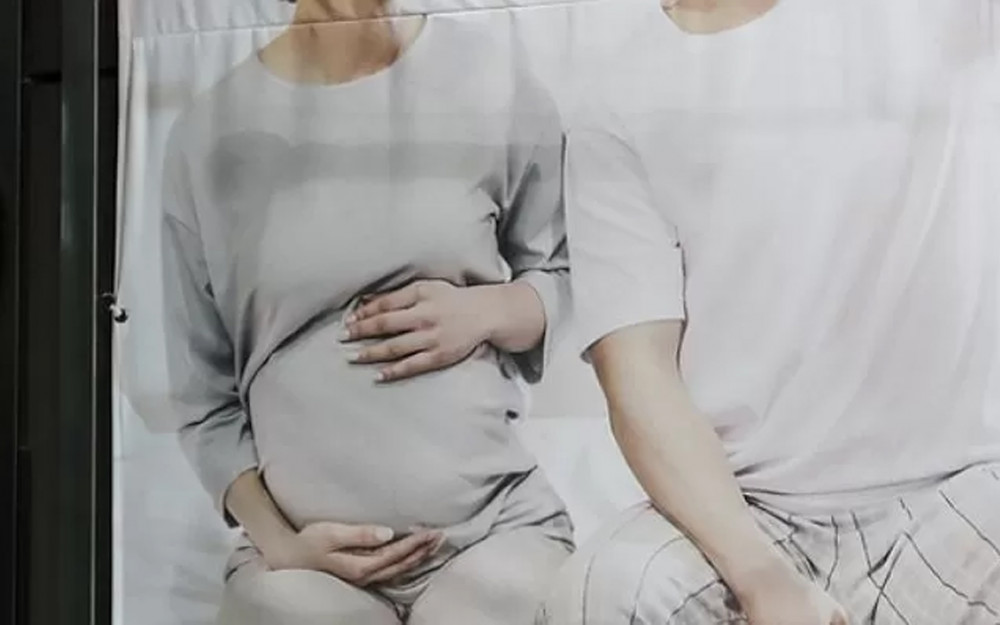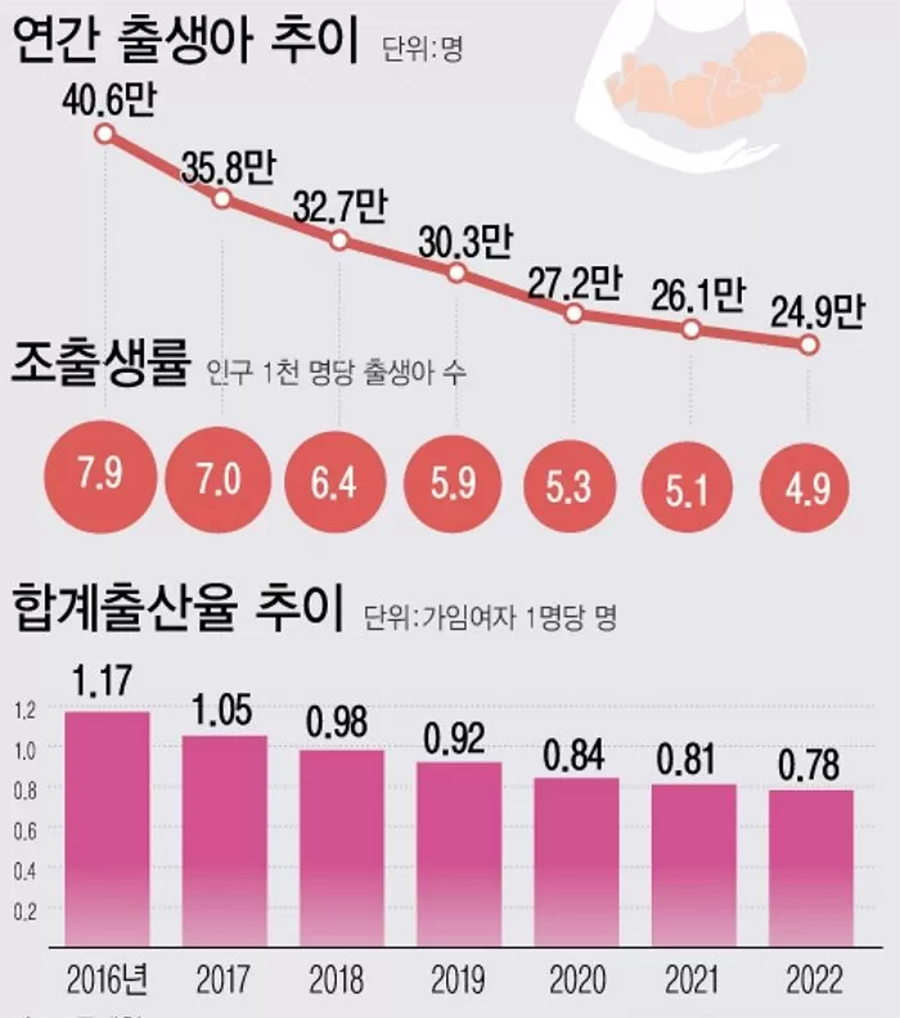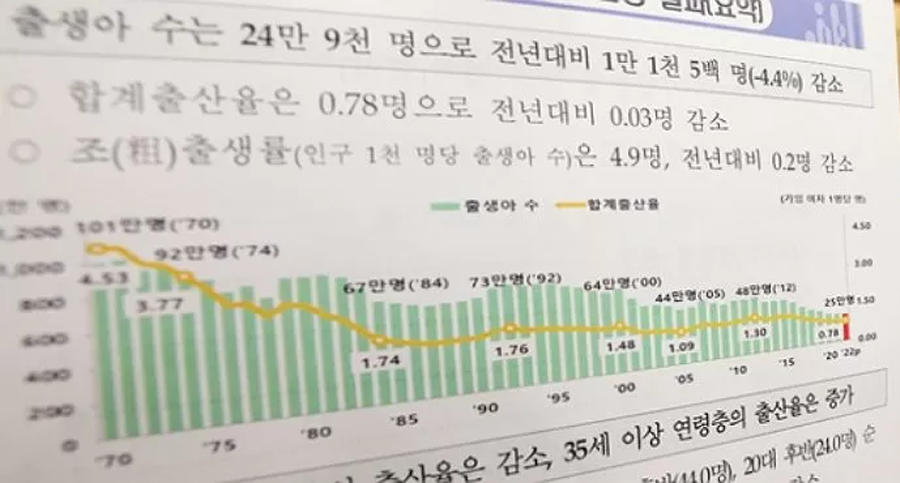
The number of annual births in South Korea has plummeted to under 250,000 for the first time in recorded history, a staggering 50% decrease from what it was ten years ago. The total birth rate in 2022 did not reach even 0.8 and stayed at 0.78. This means that there were only 5 births for every 1,000 people in the Korean population.
The COVID-19 pandemic has caused a dramatic decline in marriages and an increase in the average age of mothers giving birth, making it increasingly difficult to avoid the looming population decrease catastrophe caused by the low birth rate.
According to the "2022 birth and death statistics (provisional)" announced by the National Statistical Office on February 22, the number of births last year was 249,000, a decrease of 4.4% (11,500 births) from the previous year (266,000 births in 2021).
The number of births in South Korea has been decreasing for seven consecutive years since 2015. For the past 10 years, the birth rate has been showing a downward trend every year except in 2015. The number of annual births, which was around 490,000 in 2012, has continued to decline and has decreased 50% in just 10 years.

The average number of children a woman is expected to have in her lifetime is 0.78, which is down 0.03 in one year. After falling below 1 (0.98) for the first time in 2018, this number further decreased by another 0.2 in just 4 years.
Lim Young Il, head of the Population Trends Division at the National Statistical Office, explained, "The number of births, including the number of premature births, was at the lowest rate in recorded history (Statistics first began to be compiled in 1970)."
Sejong is the only city in the country that exceeded the total birth rate of one child at 1.12, but it seems that it would be challenging to maintain this number with the continuing downward trend nationwide.

Seoul had the lowest birth rate in the country at 0.59, and metropolitan cities such as Busan (0.72), Incheon (0.75), and Daegu (0.76) also fell short of the average birth rate of 0.78.
South Korea is not alone in facing the global issue of declining birth rates, as many developed countries worldwide are experiencing the same. However, Korea stands out as the only country among the 38 member countries of the Organization for Economic Cooperation and Development (OECD) with a total fertility rate below 1.
As of 2020, South Korea has a rate that is only half of the OECD average, which is 1.59. Italy, which has the second lowest birth rate after Korea, has a birth rate of 1.24.
The age of women giving birth also increased. The average age of mothers who gave birth last year was 33.5, which is up 0.2 years from the previous year. This means that Korean women give birth at an age that is 4 years older than the OECD average birth age of 29.3 years.
 SHARE
SHARE














































Maybe make having kids or just living less expensive and then we can think about having kids 💀 I know too many people who aren’t having kids bc they can’t afford it
9 more replies